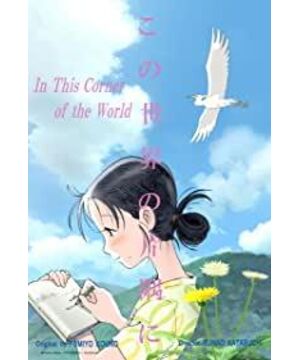From the level of painting, the quality of this film is still very high, and I like this style very much.
Before writing my thoughts, I wanted to write a story that might represent my thoughts on Japanese civilians in the war.
There is a manor, the owner of the manor has many, many farmers and a huge army. The master told the farmers: If we want to develop and live a good life, we must attack other manors and snatch their belongings, which is just. The people in the other manor are very heavily exploited and oppressed, only we can liberate them! The farmers believed it to be true, so they worked hard for their masters, day and night. Some farmers joined the army formed by the master and directly participated in the war against other manors, burning, killing, looting and doing everything.
Through the war on other estates, the pockets of the owner of this estate were slowly swelled, but the farmers only got a small part of it. The master was not satisfied with his income and ordered more farmers to join the army. During the period, some people protested, thinking that it was wrong to attack other manors, and the owner was very dissatisfied, and brutally killed these dissenting farmers. The remaining farmers were still toiling, feeling like they were contributing to the country, and grateful for a little paycheck. The peasants cast heavy chains for themselves, and after each victory the masters allow them to loosen the chains a little.
Later, the other manors that were attacked joined forces and smashed the manor with cannons. The farmers have lost their means of production and the environment on which they live, and are living in poverty and misery, while the owner of the manor has long since escaped.
Is the farmer pathetic in this story? Of course, because they are being used without knowing.
And are farmers hateful? Also hateful, because they are the accomplices of the manor owner.
Now, what we need contemporary Japanese to reflect on is why there is this war? Who started it? Who got himself the atomic bomb dropped in 1945? Whose lives are the people of the neighboring country?
It's a pity that this film didn't reach that depth.
In the book "Walking Between Love and Hate", Mr. Bai Yansong mentioned that Japanese people who are truly anti-war (that is, reflect on the causes of war and the disasters it has brought to the world from an objective point of view) are clearly in the majority. A few, most people's "anti-war" just stays on the level that war will bring us disasters, so they must be anti-war, and there are some garbage rightists who hold the history of Yasukuni. It is true that the second anti-war thought objectively made people aware of the dangers of war, and these people were an important force in curbing the madness of the Japanese right wing.
However, this "anti-war" is not comprehensive and one-sided. If Japan were victorious, would everyone still be as opposed to war as they are now? Are the characters still so sad? Or shout long live and continue to voluntarily be exploited by capitalists and bureaucrats and still not know it? This kind of thinking does not consider substantive issues, but simply stays on the surface, which is very dangerous and easy to be misinterpreted. Everyone's anger is also concentrated here, and the Japanese people who are really anti-war (such as Kobayashi Kuancheng and other Japanese soldiers who joined the Eighth Route Army during the Anti-Japanese War and some leftists in Japan) are very willing to associate with them.
Why can Germany win respect, because Germany is willing to reflect on history and admit the suffering brought to the Jews. What Japan needs now is the courage and introspection to face history, rather than fiddling with sloppy things. Only in this way can Japan truly earn respect.
Of course, I also don't agree with the ultra-nationalist remarks of netizens' so-called "pacing Tokyo".
"The enemy of the Chinese people and the Japanese people is the same, that is Japanese militarism and China's national scum"
View more about In This Corner of the World reviews











